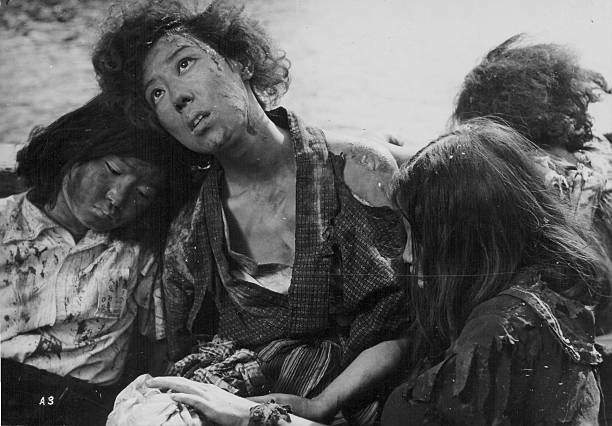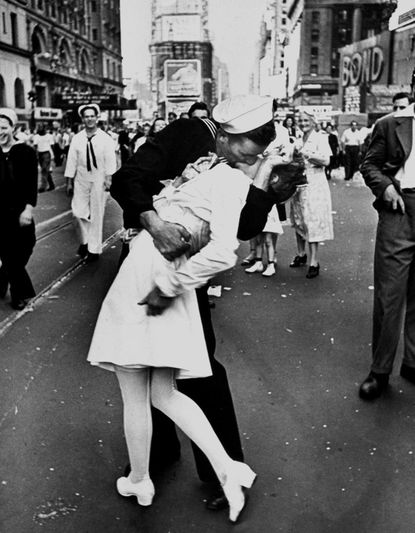Hiroshima & Nagasaki Death Toll
The bombing of Hiroshima and Nagasaki the estimated death toll is between 150,000 to 250,000 from the impact of the atomic bombing and radiation.
(Smith)

A scene from the film 'Hiroshima', funded by the Japanese School Teacher's Union
to highlights the devastation of the atomic bomb at the end of World War Two, Japan, 1952.
(Getty Images)

Hirohito - in dress uniform
(b&w film copy neg.)
Imperial Majesty Hiroti Decision
On the 10th of August the Prime Minister Admiral Baron Kantaro Suzuki respectfully begged his Imperial Majesty Hiroti to make a decision, without hesitation he said “... I do not desire any further destruction of cultures, nor any additional misfortune for the people of the world. On this occasion, we have to bear the unbearable.” The Emperor had spoken.
(AtomicArchive)
Victroy Over Japan
4 days after Prime Minister Admiral Baron Kantaro Suzuki spoken, the japanese government indicated its readiness to accept defeat on certain conditions, the following days was declared ‘Victory Over Japan’
(IWM.ORG)

V-J Day marks the end of WWII, although that event is celebrated on two different days.
(Alfred Eisenstaedt)

The first meeting of the United Nations General Assembly took place on January 10, 1946 in London.
Despite tremendous coverage in the press, a survey conducted the following summer revealed that
one-third of Americans scarcely knew the organization existed.
(Getty Images)
Americans Thoughts on The Atomic Bomb
American’s took a gallup poll days after the use of atomic weapons, the poll found that 85% of the US public approved of president Truman's decision to use the destructive new weapons developed and 10% disapproved of his decision
(Smith)
The Hidden Truth
America's were not told the whole truth which may have led the vote being biased, US media portrayed the bomb as a large convention bomb they dismissed Japanese reports of radiation and sickness as it was propoganda. Military restricted access to Hiroshima and Nagasaki, but a young journalist named John Hershey got inside Hiroshima and wrote about the devastating destruction, death and radiation poisoning he encountered.
(Davies)

journalist John Hersey during the second world war
(Bettmann)

(Getty Images)
Japan Becomes Allies With United States
After the end of World War 2, the United States made an agreement and led an allied occupation to help rehabilitate and to help Japan with occupying forces, widespread military help, economic and social reforms between 1945 to 1952.
(History State)